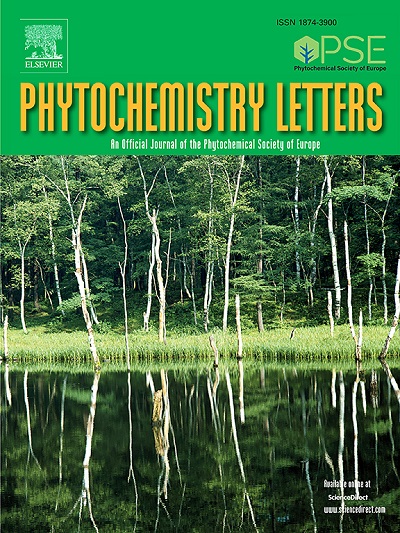人参皂苷F2抑制MLCK诱导myc驱动的三阴性乳腺癌和胰腺癌的合成致死
IF 1.4
4区 生物学
Q4 CHEMISTRY, MEDICINAL
引用次数: 0
摘要
肌球蛋白轻链激酶(MLCK)代表了与“不可药物”癌蛋白MYC的合成致死相互作用。在这项研究中,我们通过基于分子对接的天然化合物库虚拟筛选,确定了人参皂苷F2 (GF2)是一种新型MLCK抑制剂,然后进行了体外细胞验证。GF2处理抑制MLCK激酶活性,其底物myosin II调节轻链(MLC)磷酸化降低。通过细胞热移实验(CETSA)证实了GF2与MLCK的直接结合,结果显示GF2处理后MLCK的耐热性降低。值得注意的是,GF2选择性地诱导myc转化细胞凋亡,而不影响正常细胞。三阴性乳腺癌(TNBC)和MYC高表达的胰腺癌细胞对GF2治疗敏感。此外,GF2与Bcl2抑制剂venetoclax联合可协同增强myc驱动的癌细胞的凋亡。这些发现证实了GF2是一种新的MLCK抑制剂,并强调了靶向MLCK治疗myc驱动的恶性肿瘤,特别是TNBC和胰腺癌的潜力。本文章由计算机程序翻译,如有差异,请以英文原文为准。
Ginsenoside F2 inhibits MLCK to induce synthetic lethality in MYC-driven triple-negative breast cancer and pancreatic cancer
Myosin Light Chain Kinase (MLCK) represents a synthetic lethal interaction with the “undruggable” oncoprotein MYC. In this study, we identified Ginsenoside F2 (GF2) as a novel MLCK inhibitor through molecular docking-based virtual screening of a natural compound library, followed by in vitro cellular validation. GF2 treatment inhibited MLCK kinase activity, as demonstrated by the reduced phosphorylation of its substrate, myosin II regulatory light chain (MLC). The direct binding of GF2 to MLCK was confirmed using the cellular thermal shift assay (CETSA), which revealed decreased MLCK thermotolerance after GF2 treatment. Notably, GF2 selectively induced apoptosis in MYC-transformed cells while sparing normal counterparts. Triple-negative breast cancer (TNBC) and pancreatic cancer cells with high MYC expression are sensitive to GF2 treatment. Moreover, combining GF2 with the Bcl2 inhibitor venetoclax synergistically enhanced apoptosis in MYC-driven cancer cells. These findings establish GF2 as a novel MLCK inhibitor and underscore the therapeutic potential of targeting MLCK in MYC-driven malignancies, particularly TNBC and pancreatic cancer.
求助全文
通过发布文献求助,成功后即可免费获取论文全文。
去求助
来源期刊

Phytochemistry Letters
生物-生化与分子生物学
CiteScore
3.00
自引率
11.80%
发文量
190
审稿时长
34 days
期刊介绍:
Phytochemistry Letters invites rapid communications on all aspects of natural product research including:
• Structural elucidation of natural products
• Analytical evaluation of herbal medicines
• Clinical efficacy, safety and pharmacovigilance of herbal medicines
• Natural product biosynthesis
• Natural product synthesis and chemical modification
• Natural product metabolism
• Chemical ecology
• Biotechnology
• Bioassay-guided isolation
• Pharmacognosy
• Pharmacology of natural products
• Metabolomics
• Ethnobotany and traditional usage
• Genetics of natural products
Manuscripts that detail the isolation of just one new compound are not substantial enough to be sent out of review and are out of scope. Furthermore, where pharmacology has been performed on one new compound to increase the amount of novel data, the pharmacology must be substantial and/or related to the medicinal use of the producing organism.
 求助内容:
求助内容: 应助结果提醒方式:
应助结果提醒方式:


